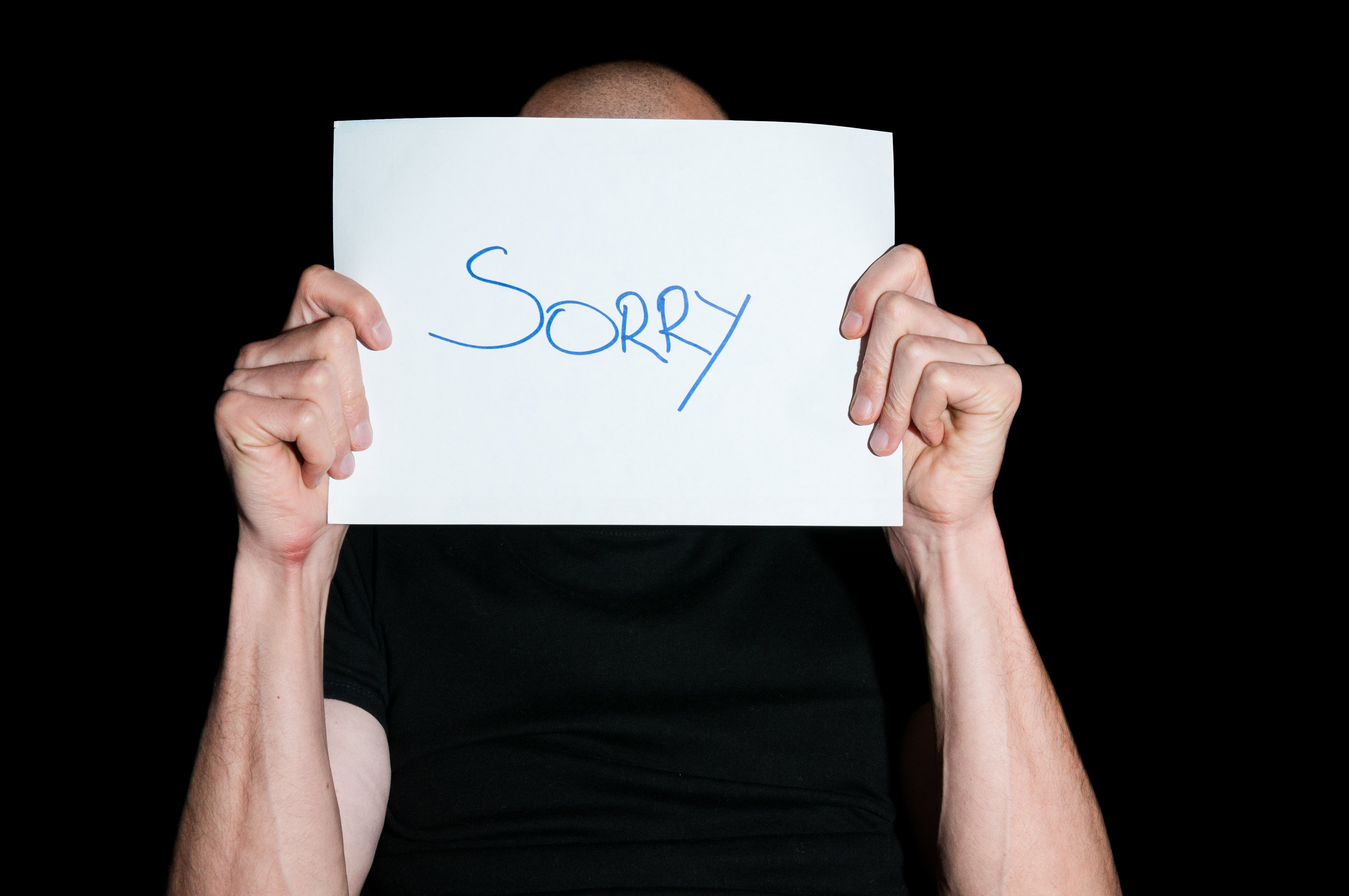How do you truly apologize when you’ve really hurt a friend? How do you act, beyond apologizing, if you want to make it better? What if it doesn’t get better? I am genuinely, deeply, profoundly sorry. I’ve told the person profusely. I’ve backed off. But I miss my friend terribly and I don’t know what to do. I’d like to open up a dialogue but I don’t know what’s appropriate. I want this pain to go away, but I know that it’s not about me. It’s about the other person, and my actions towards them. What’s the right way for a human to be sorry?
Sincerely,
Super Sorry (Really)

Dear SSR:
Stay away. This person has given you clear signals, both implied and overt, that they do not wish to engage with you or speak with you further. You hurt this person. They had a reaction. You apologized. They had another reaction. You’ve completed your duty in this matter. The kindest and most respectful thing you can do is stay away.
If you still follow them on social media, you don’t have to unfollow. But don’t engage. If they block you, don’t engage. Don’t text. Don’t call. I’m not saying you’re a villain. In fact, I quite doubt you’re a bad person. Maybe you fucked somebody they loved. Maybe you stole a little money. I don’t know. But you hurt them and you’ll hurt them over and over again if you keep reaching out. And you’ll hurt yourself if you grovel.
Perhaps at this point it might be helpful to focus on forgiving yourself, not because you want to do the bad thing again, but because you’re not helping anyone by beating yourself up. Have you spoken to a therapist or done considerable reflecting on this experience? Have you chosen your course of action so that you behave differently in future? Cool. It’s time to start looking in the mirror–literally–and saying, “I forgive you. I love you. Better choices. Live and learn.” Or make up something more enchanting.
As long as you don’t forgive yourself, you keep reopening this wound. The wound wants to heal. You won’t let it happen. There is no benefit to continuing to obsess over it. I understand that you feel regret, and you may always feel a pang of regret when you think of this former friend. But make no mistake: this is a former friend. Your friendship is over. If they wish to reopen a discussion and you are interested, that’s nice. But there’s no guarantee. And so long as you hang around waiting for it to happen, you cannot mourn the friendship. You cannot go through the necessary stages of grieving a loss.
I’ll give you a less intense example than your own. Once, I had arranged with friends to have dinner at a certain spot. It was a schlep. Once we all arrived, I realized I’d gotten the reservation wrong in my calendar. I was quite embarrassed and texted the friend who had yet to arrive, offering to cover her dinner at a restaurant chosen by the two friends who were with me. The “make-good” restaurant was in their neighborhood, and they had to get up early in the morning. Turns out it was not convenient for this other friend, and she was angry that we left without waiting for her. But she was late, I’d made a mistake, and I made a judgment call to do what was most convenient for the people with whom I’d taken the car ride. I didn’t say all that–I just acknowledged understanding her anger, and I apologized again.
The next day, I reached out to apologize again and to invite her to the (correct) dinner in the original spot–again, my treat. She said she’d pass. I said I understood. She hasn’t reached out since then, and I haven’t, either. She sent clear signals she was displeased, and whatever my feelings about her reaction or my desire to be her friend, she wanted space. Maybe she’s not interested in being friends anymore. That’s okay. I have plenty of friends. What’s comfortable and right for her is what’s comfortable and right for her. I genuinely wish her the best, and I assume she does with me, too. If she doesn’t, I don’t know. And that’s not for me to know, anyway.
Anyway, your situation sounds a lot more difficult. But it’s not for you to know how or when or if this person ever forgives you. Forgiveness is for the one who does the forgiving. It is an unburdening, a healing. But it is theirs. If we wait around for absolution from all those we’ve wronged, we may wait forever. So take care of yourself, and stop the self-flagellation before it devolves into narcissism. You are good. Now go do the work.
If you have a question and need some advice, email Sara at [email protected]









